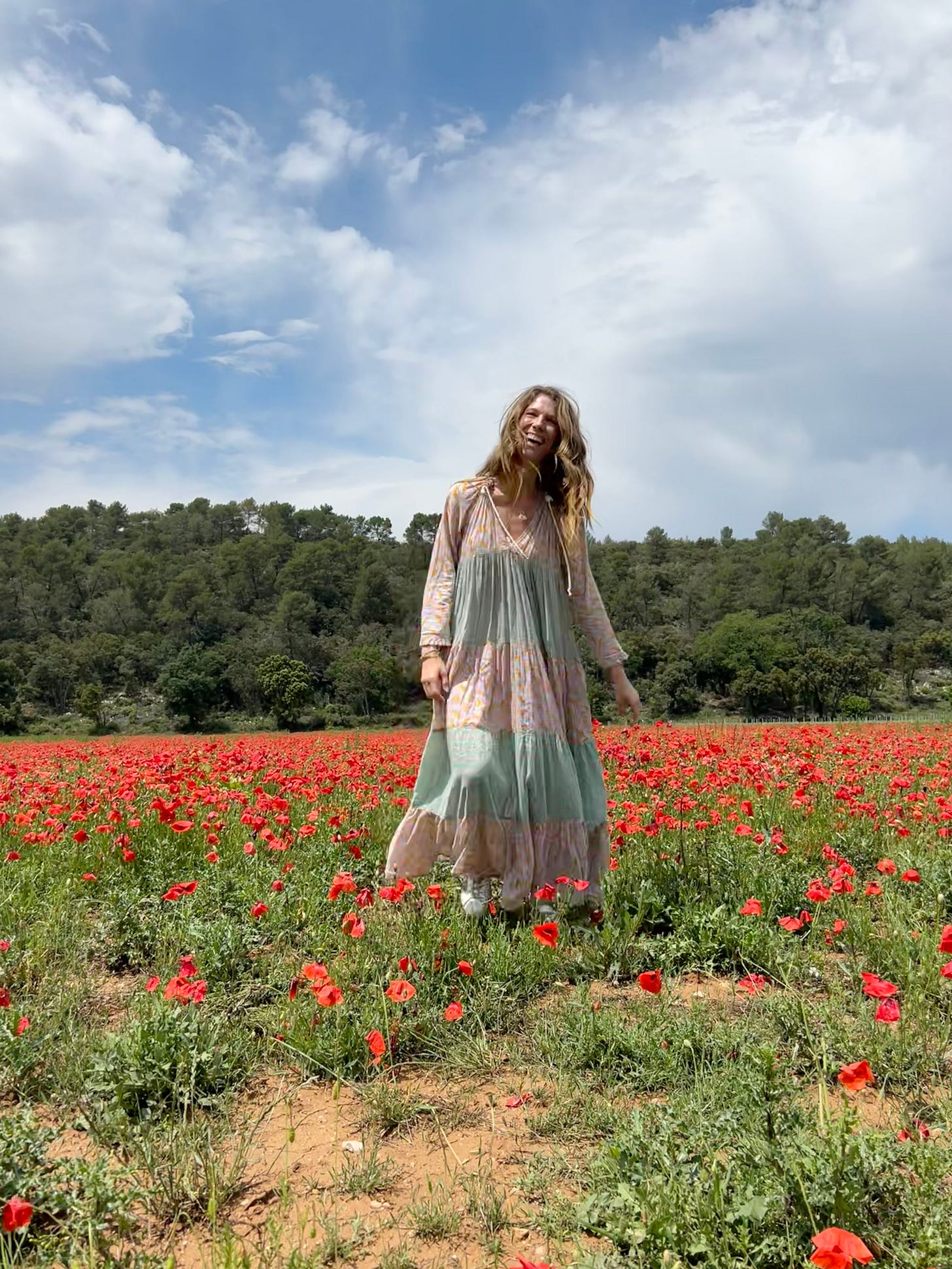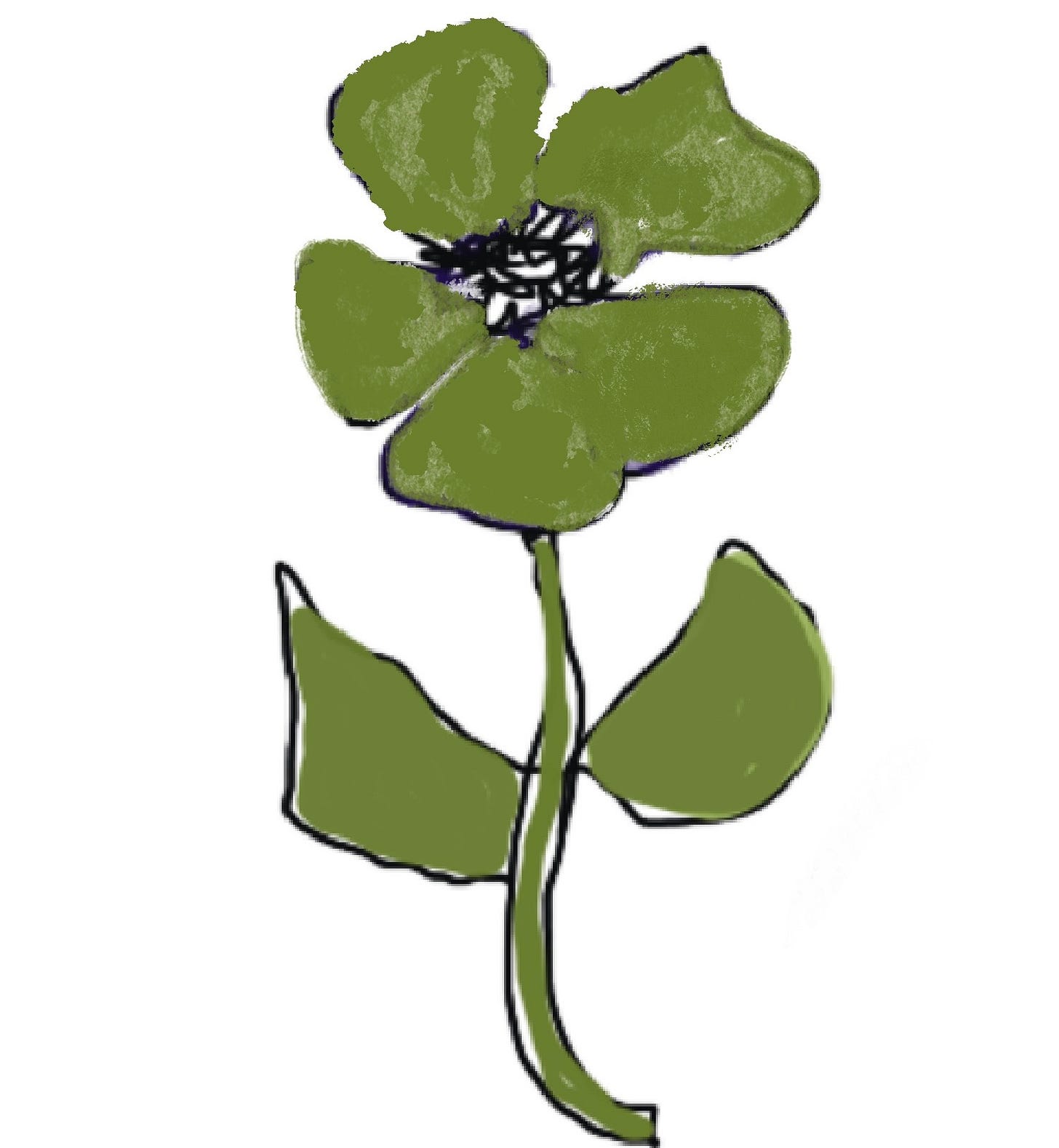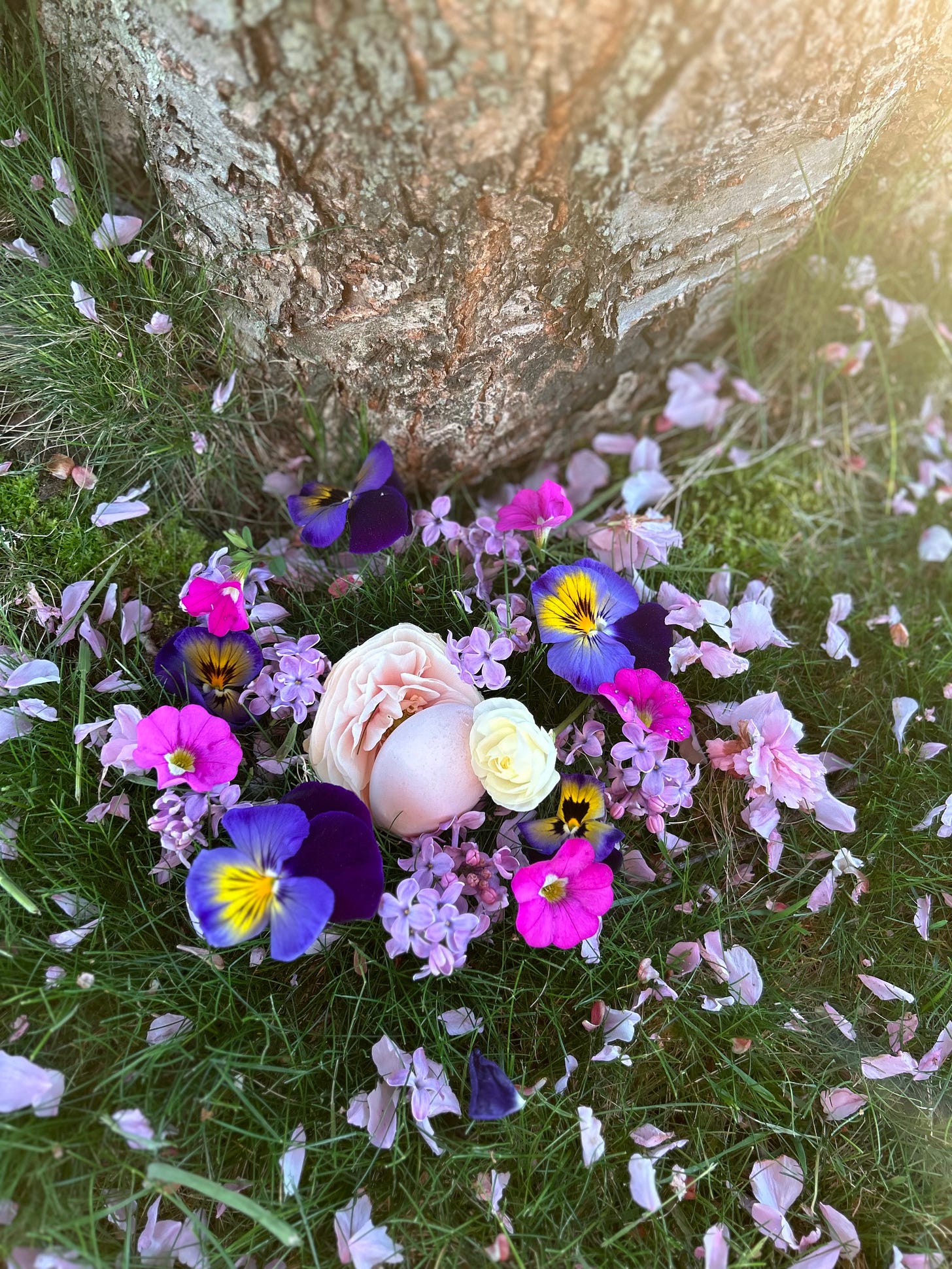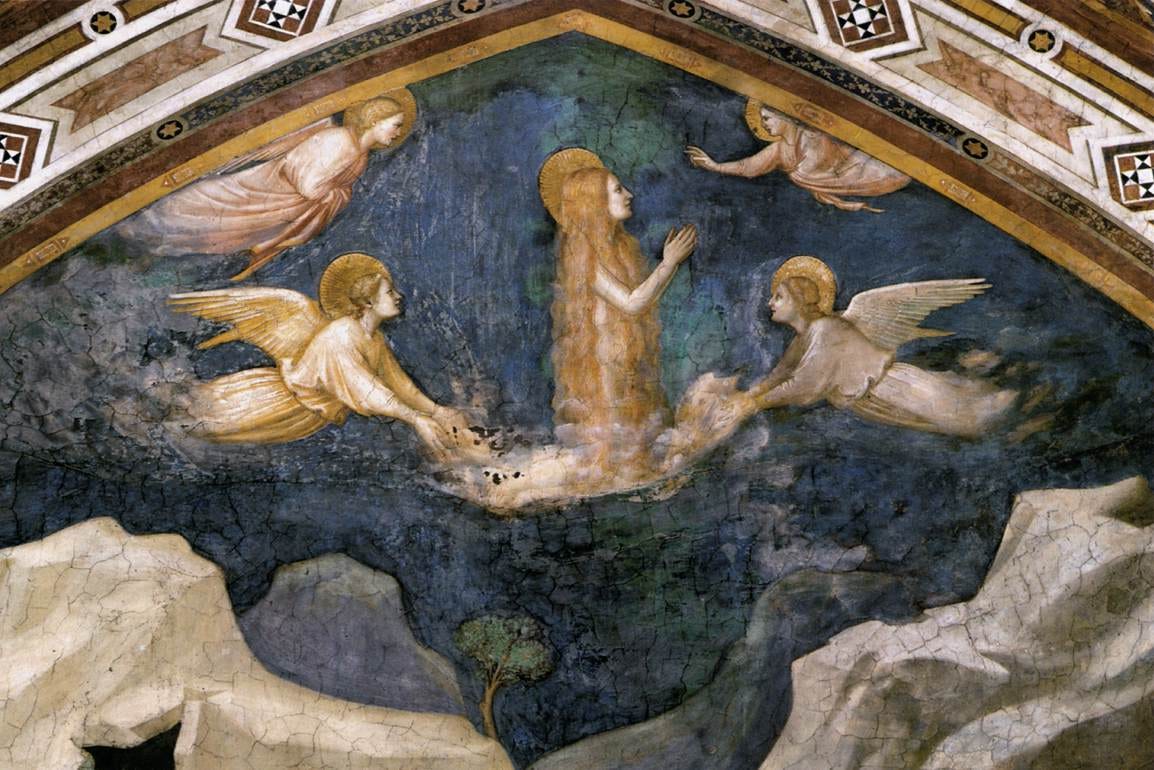
I am the first and the last
I am she who is honored and she who is mocked
I am the whore and the holy woman
I am the wife and the virgin…
…I am she, the lord
~The Thunder, Perfect Mind
Mary Magdalene.
There, I wrote it—the enigmatic name with the power to stir up emotions that swell like the sea in stormy weather.
When I speak the word, “Magdalene,” with reverence, I watch an electric current move through social situations with a charge of mystery and conspiracy. Hyper-vigilance tunes me into facial expressions. I read body language to know if it is safe to proceed, because my modern fascination gets tangled up with an ancient sort of wiring that insists I’m navigating a minefield of danger.
Generally, I retreat to the security of silence, for I’ve been told the lines and boundaries of convention will keep me safe.
What are you so afraid of?
It is a question I’ve been asking long enough to “know thyself" separately from all the triggers that turn my emotions into turmoil. Negativity begs me to remain small and quiet, but my passion bumps up against the unseen walls that keep us trapped in an illusion of fear.
All that I can no longer contain has to do with motherhood—which cracked my heart open with a love so potent and expansive, it demanded transformation. In my determination to survive, to thrive, and to flourish as the mom of five I have become, I’ve outgrown the container that once held me—and only served to keep me complacent and submissively silent.

I’ve learned that flourishing is not a stagnant state, and since vulnerability is eternally my birthplace of growth, I practice leaning into the discomfort of Mary Magdalene by whispering her name from the shadows of obscurity. The general response echoes in my mind:
“Why does she matter to you so much, anyway?”
It is a question I’ve been asked both with genuine curiosity and passive condescension that I have no simple answer for—but my shelves are lined with books that trace her from Palestine to France, where I have traveled on pilgrimage. Then there is the matter of my heart that is filled with questions, and my soul that stirs with the stories l have lived as a woman in a patriarchal world.
I wasn’t looking for Mary Magdalene, but I found her beyond the boundaries of tradition in a paradox of truth—along with everything else I’ve experienced in motherhood with its dichotomy of extremes from pregnancy to birth and beyond. I don’t have a solid argument, thesis or theory to prove about the one called Magdalene, but my belief in her worth rests on my intuitive sense that something is missing, incomplete, or wrong about the beliefs that extinguished her light.
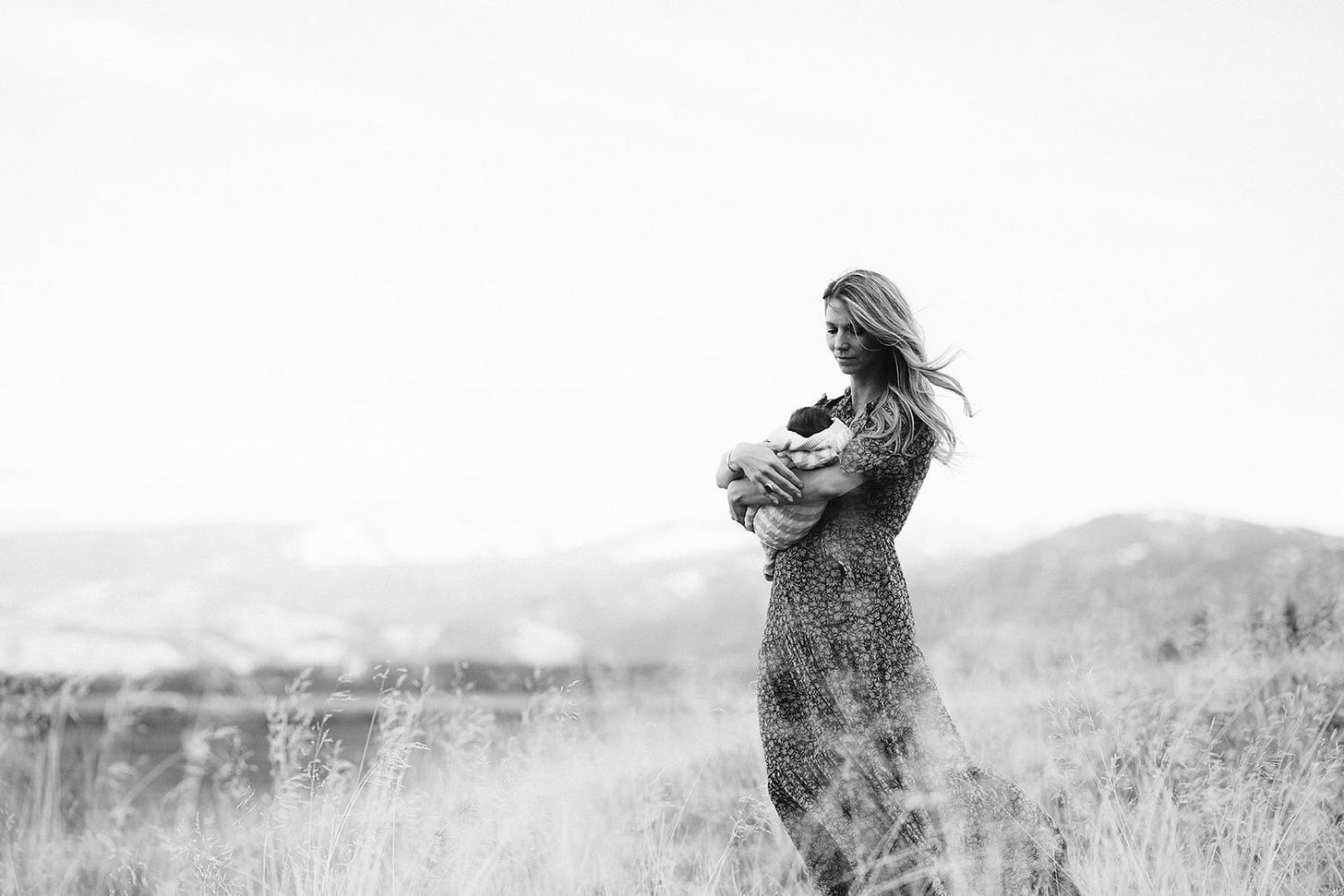
Yes, this is a knowing that washes through my body as a feeling I can choose to believe or ignore, but my sense about Mary Magdalene’s importance ties a red thread back to the day I became a mom.
On February 26, 2009, I was cradling a healthy baby girl, but haunted by a series of interventions that never felt right or necessary. The decisions made had snowballed into a C-section delivery I didn’t expect, and I wanted to know what happened.
“Your hips are too narrow,” said my doctor, a renowned OBGYN on the Upper East Side of New York City as she checked my incision. “You will never deliver naturally” she insisted while standing over me with her hands on a wound that has since healed into a perfect scar. After all, she was as talented in surgery as she was savvy in the business of being born, for the “arrest of descent” she called ensured a more lucrative outcome for her pockets.
“Alicia, it is not worth the risks to try for a Vaginal Birth After Cesarean” said another learned physician with all the prestige and power that easily eclipses a stay at home sort of mom like me.
“Crazy” was an unspoken insinuation about my intention to VBAC in 2010, a consensus that manifested with the question,
“Why does it matter so much how you give birth, anyway?”
I remember choking on words I wanted to scream but couldn’t gather into cohesion to convey the ancient outrage that made me a quiet modern rebel:
Not once, not twice, not thrice, but four times, I brought life forth into this world from my womb, naturally.
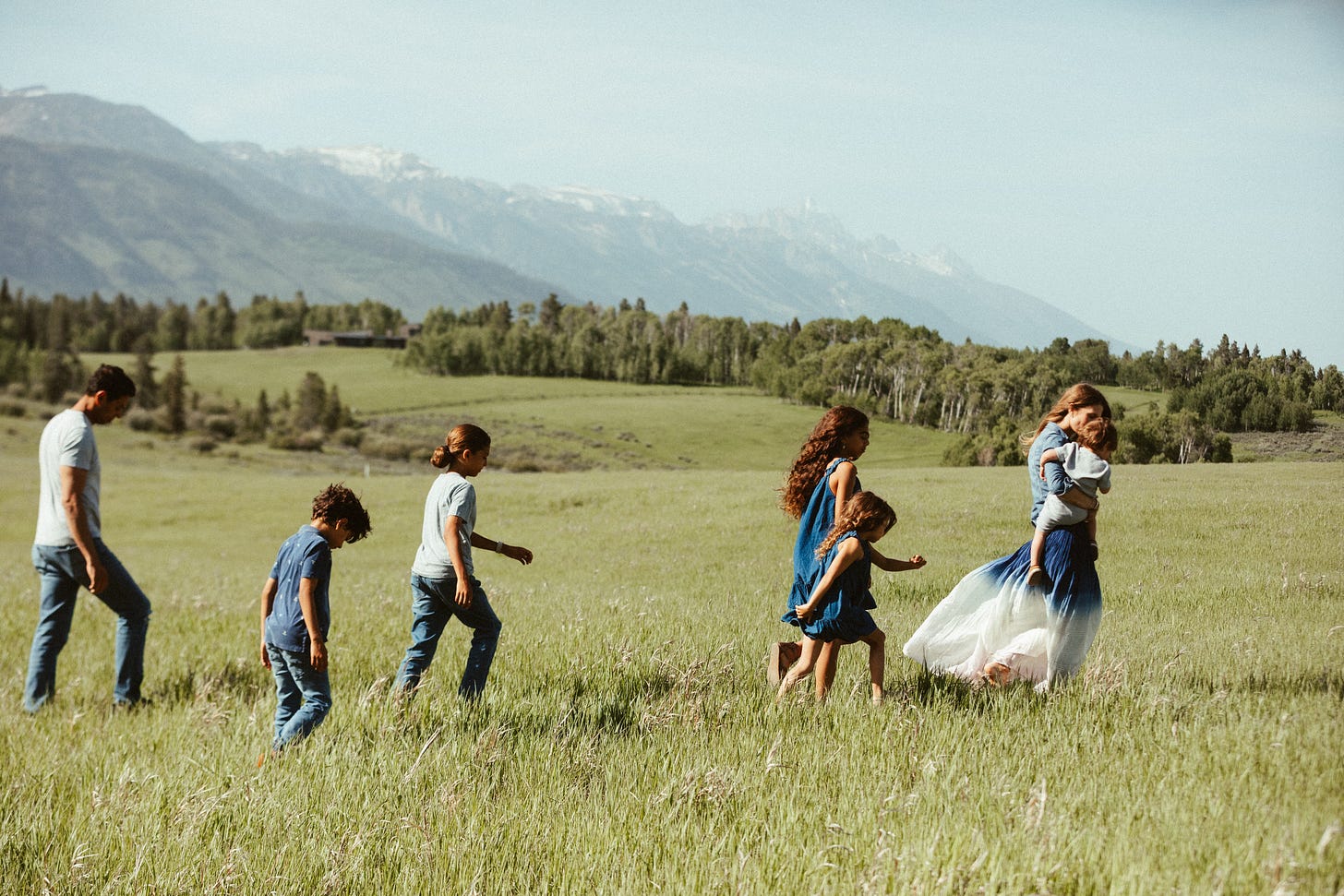
I don’t shout my VBAC stats from the rooftops, because I am well aware of how easy it is to weaponize our values and outcomes as hierarchical worth. In the opinion of many a modern birth renegade, I remain "less than” the natural earth mama goddess I once longed to be, given my medicated hospital stats. Furthermore, I am as messy and uncertain as I once was with “just” two kids and the bone weary exhaustion of surviving another witching hour. There are times I look like a parenting expert with all five of my thriving kids in tow, but I’m still waiting for a manual to tell me what to do as I battle daily against the shame and blame pervasive in motherhood.
The point is not to rank or judge, but to highlight what matters in the larger argument for women, our rights, and the voices that our warring world has long ignored but desperately needs to hear.
At the heart of the matter surrounding our disconnection from nature, body, spirit and one another lies our intuition—for She who Knows above all ration, reason, or manmade rules might advocate for a more nurturing and nuanced truth. This feminine voice—born of the right side of our brain, is what begs for us to be creative free thinkers and hold the bigger picture with arms of a compassionate mother and a radical sort of love that knows no bounds or fear.
To write these words now, I draw courage from the woman I once was—for she who pushed against the grain of the medical industry for a VBAC was right. And though it has taken me nearly two decades, eight pregnancies and five birth experiences to express with wordless conviction what it means to me, anyway, I point to the abundance of joy my intuition safely guided into this world and remember,
Fear is an illusion—there is only love.
Since I am only six years into my quest to understand the truth about Mary Magdalene, I’ve learned to meet loaded questions with an equal measure of rhetoric:
“Why is it so threatening for you to consider a more positive perspective on Magdalene than tradition preaches—when she is not overlooked together?”
Yes, I’m “just a mom" who is a cradle Christian. Most importantly, I’m not a theologian and do not intend to become one. Verily, verily I confess that I am a seeker who looks up words as simple as “canonical” to understand what it really means in the Christian traditions that shaped the beliefs, which influence the world I inhabit. A treasure hunter of goodness, I follow both feelings and facts that I map into a web of possibility about a new perspective we might hold on Mary Magdalene and why it matters to every woman, including my two daughters.

In the case of a woman erased and the Bible as we know it, “canonical” refers to a list of sacred books officially accepted as genuine and further defined as, “conforming to a general rule or acceptable procedure: orthodox.”
Orthodox is a word that creates a division, and in the formation of the rules and doctrines that guide our faith based systems, it is important to understand there were many councils debating what was “in” and what was “out” as the Church took form and structure, thereby instituting all the lines and edges that have so successfully guided us into separation, rank and order.
When you are wandering in the wake of the Magdalenian legend, you will find yourself coloring outside every last line that might exist when you bump up against historical facts about how the Bible was created, because truth be told, our “Holy Scripture” did not just drop down from the sky. This is harder for some to digest than others, but I love Cynthia Bourgealt’s description of early Christianity as a “riot of pluralism,” because there were a myriad of books, words, thoughts, and interpretations that were intentionally overlooked.
Yes, Mary Magdalene opens a big can of worms (or treasure chest, depending on your perspective), because there is a gospel written in her name that was deemed “other” by the manmade decisions and edits not in favor of women’s equality or leadership thereby shaping our authoritative Scriptures with a capital “S” and overt sexism.
Misogyny in the Bible is not a new revelation, but the notion that there were women in leadership most certainly is, and this “unorthodox” perspective on an old familiar story is one I’ve been deeply contemplating.

Both discovered manuscripts of The Gospel of Mary (Magdalene) are incomplete. One is missing almost ten pages, the other almost twelve, but the verified fragments studied by various theologians offer a glimpse into a post crucifixion scene where Mary is comforting a group of fear-filled disciples.
Soothed by her warmth and unwavering faith, Peter asks to learn of what teachings the savior imparted to her alone. When invited to speak, Mary says,
“What is hidden from you I will tell you…”
Who was Mary Magdalene?
What did she know that the disciples did not?
What did she teach and believe in?
How does this connect to the lines we can draw to her across all four canonical gospels?
What I find most fascinating about the fragmented sketch we begin to create with this lost text which places Mary in a role of authority and leadership are her words that blend culture, philosophical thought, ritual and practices into obscurity to paint a rainbow of potential about “The Good” she brings into our midst.
You can read on about how her philosophy aligns with the science of positive psychology here, or read an excerpt from my forthcoming memoir On Faith and Flourishing in Motherhood, where I take you from my career as a professional dancer, to my studies of happiness, through the struggle and joys of motherhood, to a cave in France—in search of Mary Magdalene and the good within our midst.
In the meantime, you can head over to
for essays and conversation about the legend, teachings and archetype of Mary Magdalene.Or, if are inspired to dive in, here’s a list of translations and interpretations of The Gospel of Mary—the first and only known gospel whose main figure is a woman, a confident of Jesus, and a leader of the disciples:
Karen King, a Hollis Professor of Divinity at Harvard University was the first to bring her gospel mainstream in Mary of Magdala: Jesus and the First Woman Apostle.
Meggan Watterson is a fellow Harvard theologian who will take you on a personal journey in Mary Magdalene Revealed: The First Apostle, Her Feminist Gospel & the Christianity We Haven’t Tried Yet.
Jean Yves Leloup’s is a French theologian, writer, and translator of Greek and Coptic texts brings a deeply contemplative and poetic voice to his translation of The Gospel of Mary Magdalene.
The above cited Cynthia Bourgealt brings the perspective of a modern Episcopal priest in The Meaning of Mary Magdalene: Discovering the Woman at the Heart of Christianity, and her collaborative translation of The Luminous Gospels: Thomas, Mary Magdalene, and Philip offers grounded and clear perspective of ancient wisdom.
Finally, I suggest A New New Testament: A Bible for the Twenty-first Century Combining Traditional and Newly Discovered Texts, which is the resource I leaned on as I composed this essay and is inclusive of The Thunder, Perfect Mind—the ancient poetic source of my introductory quote. Hal Taussig’s presentation of Mary’s lost scripture is profound, for he considers her gospel alongside Mark, Matthew, Luke and John—offering a more holistic viewpoint of the vibrant and diverse conversations that sparked the rise of Christianity.
Inspiration: Birth Matters: A Midwife’s Manifesto by Ina May Gaskin
Soundtrack: Debussy: Clair de Lune
Nourishment: Theo Chocolate, 55% Dark, Salted Toffee
Guide: Amy Laughlin @ The Witch and the Elf





